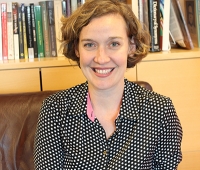Emily Bloom is Adjunct Assistant Professor in the Department of English and Comparative Literature and Associate Director of the Heyman Center for the Humanities. She earned her B.A. from Washington University in St Louis (2003), M.A. Boston College (2006); and Ph.D. Texas (2012). Bloom specializes in Anglophone late modernism spanning the 1930s through the 1960s. Her work focuses on the interrelations between media institutions and transnational literary networks. She has published articles on the poetry broadcasts of W.B. Yeats, 1950s radio drama, and performance traditions in the works of James Joyce and Samuel Beckett. Her book, The Wireless Past: Anglo-Irish Writers and the BBC, 1931-1968 (Oxford University Press, 2016) chronicles the emergence of the British Broadcasting Corporation as a significant promotional platform and aesthetic influence for Irish modernism.
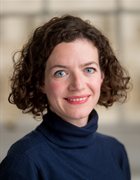 Rowan Boyson studied for her BA and MPhil at the University of Cambridge, and was a Knox Fellow at Harvard University. Her PhD was supervised by Paul Hamilton at Queen Mary, University of London and awarded in 2008. She taught at Queen Mary and at London Metropolitan before being elected as a Junior Research Fellow at King’s College, Cambridge in 2009. Her current project is a philosophical-cultural history of smell rooted in the Enlightenment and Romantic periods. Research questions include the relation of materialism and imagination in early-Enlightenment thought, critical concepts of Romantic lyric sensuousness, and narratives of the senses in relation to political and cultural theories of modernity. She has published chapters and articles on smell and the senses (see ‘Selected Publications’). She is also developing research into the topics of waste, idleness and rest, especially in relation to Rousseau. Previous work has focused on the interplay of aesthetics and politics in the long eighteenth century. Her first monograph, Wordsworth and the Enlightenment Idea of Pleasure, (2012, paperback 2015), won the University English Early Career Book Prize in 2013. It has been reviewed in Romanticism, European Romantic Review, The Wordsworth Circle, the BARS Bulletin and Review and Studies in Romanticism. The book considered the political and ethical problem of pleasure for a range of Enlightenment thinkers including Shaftesbury, Kant, Rousseau, Wollstonecraft before examining William Wordsworth’s treatment of the theme and its critical legacy.
Rowan Boyson studied for her BA and MPhil at the University of Cambridge, and was a Knox Fellow at Harvard University. Her PhD was supervised by Paul Hamilton at Queen Mary, University of London and awarded in 2008. She taught at Queen Mary and at London Metropolitan before being elected as a Junior Research Fellow at King’s College, Cambridge in 2009. Her current project is a philosophical-cultural history of smell rooted in the Enlightenment and Romantic periods. Research questions include the relation of materialism and imagination in early-Enlightenment thought, critical concepts of Romantic lyric sensuousness, and narratives of the senses in relation to political and cultural theories of modernity. She has published chapters and articles on smell and the senses (see ‘Selected Publications’). She is also developing research into the topics of waste, idleness and rest, especially in relation to Rousseau. Previous work has focused on the interplay of aesthetics and politics in the long eighteenth century. Her first monograph, Wordsworth and the Enlightenment Idea of Pleasure, (2012, paperback 2015), won the University English Early Career Book Prize in 2013. It has been reviewed in Romanticism, European Romantic Review, The Wordsworth Circle, the BARS Bulletin and Review and Studies in Romanticism. The book considered the political and ethical problem of pleasure for a range of Enlightenment thinkers including Shaftesbury, Kant, Rousseau, Wollstonecraft before examining William Wordsworth’s treatment of the theme and its critical legacy.
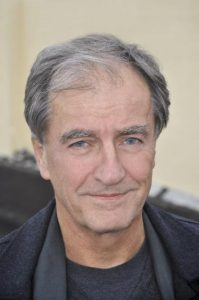 James Chandler is the director of the Franke Institute for the Humanities and holds the Barbara E. & Richard J. Franke Professorship in English Language and Literature at the University of Chicago. His research and teaching interests include the Romantic movement; the study of lyric poetry; the history of the novel; relations between politics and literature, history and criticism; the Scottish Enlightenment; modern Irish literature and culture; the sentimental mode; cinema studies; and the history of humanities disciplines. He is the author of two books on English Romanticism: Wordsworth’s Second Nature (1984) and England in 1819: The Politics of Literary Culture and the Case of Romantic Historicism, which won the 2000 Gordon J. Laing Award for distinction in academic publishing.
James Chandler is the director of the Franke Institute for the Humanities and holds the Barbara E. & Richard J. Franke Professorship in English Language and Literature at the University of Chicago. His research and teaching interests include the Romantic movement; the study of lyric poetry; the history of the novel; relations between politics and literature, history and criticism; the Scottish Enlightenment; modern Irish literature and culture; the sentimental mode; cinema studies; and the history of humanities disciplines. He is the author of two books on English Romanticism: Wordsworth’s Second Nature (1984) and England in 1819: The Politics of Literary Culture and the Case of Romantic Historicism, which won the 2000 Gordon J. Laing Award for distinction in academic publishing.
 Oskar Cox-Jensen is a cultural historian specialising in popular song, particularly around 1800. Oskar read Modern History at Christ Church, Oxford, where he completed his BA, MSt, and DPhil on ‘Napoleon and British Popular Song, 1797-1822’ (2013). His supervisors were Mark Philp and Kathryn Gleadle. He has taught undergraduate courses to both Oxford and visiting students on numerous subjects, including 18th century British history, the Enlightenment, the French Revolution, and European mythology and folklore. His book, Napoleon and British Song, 1797-1822, was published by Palgrave in 2015.
Oskar Cox-Jensen is a cultural historian specialising in popular song, particularly around 1800. Oskar read Modern History at Christ Church, Oxford, where he completed his BA, MSt, and DPhil on ‘Napoleon and British Popular Song, 1797-1822’ (2013). His supervisors were Mark Philp and Kathryn Gleadle. He has taught undergraduate courses to both Oxford and visiting students on numerous subjects, including 18th century British history, the Enlightenment, the French Revolution, and European mythology and folklore. His book, Napoleon and British Song, 1797-1822, was published by Palgrave in 2015.
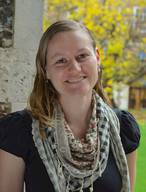 Melissa Dickson obtained a BA with first class honours, MPhil, and University Medal from the University of Queensland, Australia, and then completed her PhD at King’s College, London in 2013. She came to Oxford in March 2014 as a Postdoctoral Research Assistant on the ERC funded Diseases of Modern Life: Nineteenth-Century Perspectives, a five-year, interdisciplinary research project based at St Anne’s College. Her work on this project focuses upon those diseases, anxieties, and pathologies derived from the Victorian soundscape and new understandings of the auditory experience. She is interested both in the effects of sound upon the mind and the literary and cultural imagination, and in the use of controlled sounds, silence, and music as counters to an increasingly problematic urban cacophony.
Melissa Dickson obtained a BA with first class honours, MPhil, and University Medal from the University of Queensland, Australia, and then completed her PhD at King’s College, London in 2013. She came to Oxford in March 2014 as a Postdoctoral Research Assistant on the ERC funded Diseases of Modern Life: Nineteenth-Century Perspectives, a five-year, interdisciplinary research project based at St Anne’s College. Her work on this project focuses upon those diseases, anxieties, and pathologies derived from the Victorian soundscape and new understandings of the auditory experience. She is interested both in the effects of sound upon the mind and the literary and cultural imagination, and in the use of controlled sounds, silence, and music as counters to an increasingly problematic urban cacophony.
 Kathy Fry is a Postdoctoral Research Associate at King’s College London, working as part of the European Research Council-funded project ‘Music in London 1800-1851’. Her research focuses on musical culture in nineteenth-century Britain and Germany, and intersections between music, literature and social theory. She holds a BA in Music from the University of Cambridge, an MA in critical theory and PhD in musicology, both from King’s College London. Her PhD thesis, ‘Nietzsche and Wagner: Music Language, Decadence’ (2015), analysed Nietzsche’s writings about music (Wagner in particular) within the context of his wider philosophies of language and culture, drawing comparisons with surrounding debates about Wagnerism, as well as with contemporary theories of language in post-structuralism. Her work is published in Opera Quarterly, Cambridge Opera Journal and forthcoming in The Journal of the Royal Musical Association.
Kathy Fry is a Postdoctoral Research Associate at King’s College London, working as part of the European Research Council-funded project ‘Music in London 1800-1851’. Her research focuses on musical culture in nineteenth-century Britain and Germany, and intersections between music, literature and social theory. She holds a BA in Music from the University of Cambridge, an MA in critical theory and PhD in musicology, both from King’s College London. Her PhD thesis, ‘Nietzsche and Wagner: Music Language, Decadence’ (2015), analysed Nietzsche’s writings about music (Wagner in particular) within the context of his wider philosophies of language and culture, drawing comparisons with surrounding debates about Wagnerism, as well as with contemporary theories of language in post-structuralism. Her work is published in Opera Quarterly, Cambridge Opera Journal and forthcoming in The Journal of the Royal Musical Association.
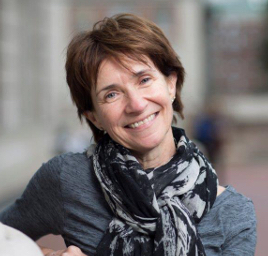 Eileen Gillooly is Executive Director of the Heyman Center for the Humanities and Society of Fellows, Adjunct Associate Professor of English and Comparative Literature and the Institute for Research on Women and Gender. Her interests include nineteenth-century literature and culture in Britain and its colonies, gender studies, public humanities, justice studies, medical and health humanities, the history of the English novel, and literary and social theory. She is the author of Smile of Discontent: Humor, Gender, and Nineteenth-Century British Fiction(University of Chicago Press, 1999), which was awarded the Perkins Prize by the International Society for the Study of Narrative (2001), and of essays, articles, and reviews in such publications as Victorian Studies, ELH, Feminist Studies, The New York Times Book Review, Victorian Literary Cultures: A Critical Companion to the Nineteenth-Century Novel, Feminist Literary Theory: A Dictionary, The Victorian Comic Spirit, The Politics of Humour, Victorian Prism: Refractions of the Crystal Palace, Feminist Nightmares/Women at Odds, Contemporary Dickens, and A Companion to British Literature (Wiley/Blackwell). She has edited the poetry of Robert Browning and Rudyard Kipling (Sterling Publishing: 2000 and 2001) and is a contributing editor of Victorian Prism: Refractions of the Crystal Palace (University of Virginia Press, 2007), with James Buzard and Joseph Childers, and Contemporary Dickens (Ohio State University Press, 2009; paperback, 2015), with Deirdre David. She has been awarded research fellowships by the American Council of Learned Societies, the National Endowment for the Humanities, the National Humanities Center, the Woodrow Wilson Foundation, the Whiting Foundation, St. Deiniol’s Library (UK), and the Moore Institute at the National University of Ireland, Galway. She is currently a principal investigator on the Andrew W. Mellon Foundation grant for Justice-in-Education (2015-2018). In 2002, she received the Award for Distinguished Service to the Core Curriculum. Her current projects include a book about parental feeling in nineteenth-century middle-class Britain and a digital, open-access critical edition of David Copperfield.
Eileen Gillooly is Executive Director of the Heyman Center for the Humanities and Society of Fellows, Adjunct Associate Professor of English and Comparative Literature and the Institute for Research on Women and Gender. Her interests include nineteenth-century literature and culture in Britain and its colonies, gender studies, public humanities, justice studies, medical and health humanities, the history of the English novel, and literary and social theory. She is the author of Smile of Discontent: Humor, Gender, and Nineteenth-Century British Fiction(University of Chicago Press, 1999), which was awarded the Perkins Prize by the International Society for the Study of Narrative (2001), and of essays, articles, and reviews in such publications as Victorian Studies, ELH, Feminist Studies, The New York Times Book Review, Victorian Literary Cultures: A Critical Companion to the Nineteenth-Century Novel, Feminist Literary Theory: A Dictionary, The Victorian Comic Spirit, The Politics of Humour, Victorian Prism: Refractions of the Crystal Palace, Feminist Nightmares/Women at Odds, Contemporary Dickens, and A Companion to British Literature (Wiley/Blackwell). She has edited the poetry of Robert Browning and Rudyard Kipling (Sterling Publishing: 2000 and 2001) and is a contributing editor of Victorian Prism: Refractions of the Crystal Palace (University of Virginia Press, 2007), with James Buzard and Joseph Childers, and Contemporary Dickens (Ohio State University Press, 2009; paperback, 2015), with Deirdre David. She has been awarded research fellowships by the American Council of Learned Societies, the National Endowment for the Humanities, the National Humanities Center, the Woodrow Wilson Foundation, the Whiting Foundation, St. Deiniol’s Library (UK), and the Moore Institute at the National University of Ireland, Galway. She is currently a principal investigator on the Andrew W. Mellon Foundation grant for Justice-in-Education (2015-2018). In 2002, she received the Award for Distinguished Service to the Core Curriculum. Her current projects include a book about parental feeling in nineteenth-century middle-class Britain and a digital, open-access critical edition of David Copperfield.
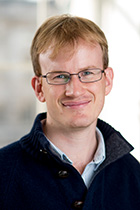 James Grande completed his undergraduate and postgraduate degrees at the University of Oxford, where he was a research assistant on the Leverhulme-funded Godwin Diary Project and wrote his doctoral thesis on the radical journalist William Cobbett. He joined King’s in 2011 as a British Academy Postdoctoral Fellow to work on the politics and aesthetics of religious dissent. Between 2014 and 2016 he was a postdoctoral research fellow on the ERC project Music in London, 1800-1851. His research is focused on the politics and print culture of the Romantic period. His first monograph, William Cobbett, the Press and Rural England: Radicalism and the Fourth Estate, 1792-1835 (Palgrave Macmillan, 2014) offers a new interpretation of Cobbett as a Burkean radical whose writing cuts across the ‘revolution controversy’ of the 1790s, combining Thomas Paine’s common sense and transatlantic radicalism with Edmund Burke’s emphasis on tradition, patriotism and the domestic affections. James has also co-edited an anthology of Cobbett’s writings and a volume of essays by scholars from literary studies, social history and the history of political thought on Cobbett’s contexts and legacies. His current research project is entitled ‘Articulate Sounds: Music, Dissent and Literary Culture, 1789-1840’ and explores the equivocal place of music within dissenting culture. He is also co-editing a collection of essays on song and scripture in nineteenth-century Britain and is particularly interested in the intersections between literary studies, religious history, musicology and sound studies.
James Grande completed his undergraduate and postgraduate degrees at the University of Oxford, where he was a research assistant on the Leverhulme-funded Godwin Diary Project and wrote his doctoral thesis on the radical journalist William Cobbett. He joined King’s in 2011 as a British Academy Postdoctoral Fellow to work on the politics and aesthetics of religious dissent. Between 2014 and 2016 he was a postdoctoral research fellow on the ERC project Music in London, 1800-1851. His research is focused on the politics and print culture of the Romantic period. His first monograph, William Cobbett, the Press and Rural England: Radicalism and the Fourth Estate, 1792-1835 (Palgrave Macmillan, 2014) offers a new interpretation of Cobbett as a Burkean radical whose writing cuts across the ‘revolution controversy’ of the 1790s, combining Thomas Paine’s common sense and transatlantic radicalism with Edmund Burke’s emphasis on tradition, patriotism and the domestic affections. James has also co-edited an anthology of Cobbett’s writings and a volume of essays by scholars from literary studies, social history and the history of political thought on Cobbett’s contexts and legacies. His current research project is entitled ‘Articulate Sounds: Music, Dissent and Literary Culture, 1789-1840’ and explores the equivocal place of music within dissenting culture. He is also co-editing a collection of essays on song and scripture in nineteenth-century Britain and is particularly interested in the intersections between literary studies, religious history, musicology and sound studies.
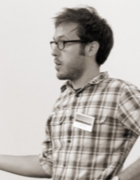 Jonathan Hicks is a postdoctoral researcher on the European Research Council project, Music in London, 1800-1851. His primary interests are in the historically grounded study of musical geographies, especially those of west European megacities. In addition to preparing a monograph on street music and the politics of public space in London and Paris, c.1830-1850, Jo is currently co-convening a symposium on The Melodramatic Moment, 1790-1820. Jo is a founder member of the Leverhulme-funded Hearing Landscape Critically research network, and a participant in the Oxford-Princeton exchange project, Staging History: Performing the Past in London and New York Theatres, 1770-1870. He has held a Junior Research Fellowship at Lincoln College, Oxford. His doctoral thesis, on Music, Place, and Mobility in Erik Saties Paris, was completed at Oxford in 2012, under the supervision of Professor Peter Franklin. His Masters degree in Musicology was also from Oxford, and his Bachelors degree in Music from the University of Birmingham.
Jonathan Hicks is a postdoctoral researcher on the European Research Council project, Music in London, 1800-1851. His primary interests are in the historically grounded study of musical geographies, especially those of west European megacities. In addition to preparing a monograph on street music and the politics of public space in London and Paris, c.1830-1850, Jo is currently co-convening a symposium on The Melodramatic Moment, 1790-1820. Jo is a founder member of the Leverhulme-funded Hearing Landscape Critically research network, and a participant in the Oxford-Princeton exchange project, Staging History: Performing the Past in London and New York Theatres, 1770-1870. He has held a Junior Research Fellowship at Lincoln College, Oxford. His doctoral thesis, on Music, Place, and Mobility in Erik Saties Paris, was completed at Oxford in 2012, under the supervision of Professor Peter Franklin. His Masters degree in Musicology was also from Oxford, and his Bachelors degree in Music from the University of Birmingham.
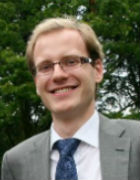 David Kennerley is a social and cultural historian of modern Britain with a particular interest in the history of sound, musical life and performance. He completed his doctorate in History at the University of Oxford in January 2014, with a thesis on professional female singers in Britain, c.1760-1850, supervised by Professor Bob Harris. Since then, he has worked as a research assistant to Professor Kathryn Gleadle at the University of Oxford and held two stipendiary lectureships at Worcester College and Somerville College, Oxford. He joined KCL in October 2016 as a Postdoctoral Research Associate on the European Research Council project ‘Music in London, 1800–1851’. His current book project, focusing on the period c.1780–1850, explores sonic aspects of gender in the past, through investigating the ways in which the differing styles of performance and vocality of various kinds of female singers were perceived to encode aurally different types of contemporary femininity, including new kinds of female professional identities. In addition, he is currently undertaking research into the role of musical performance in political culture and has written recently on Charles Dibdin’s loyalist songs in the 1790s and on Chartist performances of opera in the 1840s. He is currently organising a conference (with Oskar Cox Jensen) on ‘Music and Politics in Britain, c.1780–1850’ to be held in June 2017.
David Kennerley is a social and cultural historian of modern Britain with a particular interest in the history of sound, musical life and performance. He completed his doctorate in History at the University of Oxford in January 2014, with a thesis on professional female singers in Britain, c.1760-1850, supervised by Professor Bob Harris. Since then, he has worked as a research assistant to Professor Kathryn Gleadle at the University of Oxford and held two stipendiary lectureships at Worcester College and Somerville College, Oxford. He joined KCL in October 2016 as a Postdoctoral Research Associate on the European Research Council project ‘Music in London, 1800–1851’. His current book project, focusing on the period c.1780–1850, explores sonic aspects of gender in the past, through investigating the ways in which the differing styles of performance and vocality of various kinds of female singers were perceived to encode aurally different types of contemporary femininity, including new kinds of female professional identities. In addition, he is currently undertaking research into the role of musical performance in political culture and has written recently on Charles Dibdin’s loyalist songs in the 1790s and on Chartist performances of opera in the 1840s. He is currently organising a conference (with Oskar Cox Jensen) on ‘Music and Politics in Britain, c.1780–1850’ to be held in June 2017.
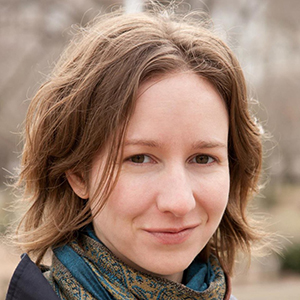 Ellen Lockhart is Assistant Professor of Musicology at the Faculty of Music, University of Toronto. After receiving her PhD from Cornell University in 2011, she became a postdoctoral fellow in the Society of Fellows in the Liberal Arts at Princeton University. Her monograph Animation, Plasticity, and Music in Italy, 1770-1830 is forthcoming from the University of California Press, and her edited volume, Sound Knowledge (with James Q. Davies ) on music and science in London during the period 1798-1851, was published by the University of Chicago Press in 2017. Her critical edition of Puccini’s “Wild West opera” La fanciulla del West will be published by Ricordi, and is slated for performance under Riccardo Chailly; she is also co-editing (with David Rosen) a critical edition of the original mise-en-scène. She has recently become Reviews Editor for the Cambridge Opera Journal.
Ellen Lockhart is Assistant Professor of Musicology at the Faculty of Music, University of Toronto. After receiving her PhD from Cornell University in 2011, she became a postdoctoral fellow in the Society of Fellows in the Liberal Arts at Princeton University. Her monograph Animation, Plasticity, and Music in Italy, 1770-1830 is forthcoming from the University of California Press, and her edited volume, Sound Knowledge (with James Q. Davies ) on music and science in London during the period 1798-1851, was published by the University of Chicago Press in 2017. Her critical edition of Puccini’s “Wild West opera” La fanciulla del West will be published by Ricordi, and is slated for performance under Riccardo Chailly; she is also co-editing (with David Rosen) a critical edition of the original mise-en-scène. She has recently become Reviews Editor for the Cambridge Opera Journal.
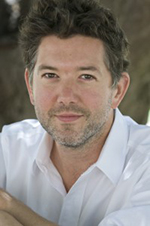 Nicholas Mathew holds a PhD from Cornell University, where he also studied period pianos with Malcolm Bilson. Before joining Berkeley, he returned to Oxford as a Junior Research Fellow in Music at Jesus College. For three years he was co-editor of the journal Eighteenth-Century Music, and he remains on its editorial board, as well as the advisory board of Eighteenth-Century Studies.
Nicholas Mathew holds a PhD from Cornell University, where he also studied period pianos with Malcolm Bilson. Before joining Berkeley, he returned to Oxford as a Junior Research Fellow in Music at Jesus College. For three years he was co-editor of the journal Eighteenth-Century Music, and he remains on its editorial board, as well as the advisory board of Eighteenth-Century Studies.
His published work has mainly focused on the relationships between music and politics in the eighteenth and nineteenth centuries: the place of music in political institutions, the role of music in public life, and the ways in which music constructs collective identity – as well as issues of political appropriation, subversion, musical trashiness, and political kitsch. In his book, Political Beethoven (2013), he re-examines the politically charged rhetoric of Beethoven’s music and its later reception, teasing out relationships between his canonical music and the political schlock of the Napoleonic era, including his own alleged potboilers. The essays in the volume The Invention of Beethoven and Rossini (edited with Benjamin Walton in 2013) revisit the history of the fraught opposition between the two eponymous composers, and the artistic and philosophical traditions they have come to represent.
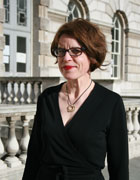 Josephine McDonagh is a professor of literature at King’s College, London, having previously taught at the Universities of Oxford, Cork, Exeter, and Birkbeck, University of London. Her work mainly concerns later 18th and 19th century British literature and culture. She has written monographs on Thomas De Quincey (De Quincey’s Disciplines [1994]), George Eliot (George Eliot [1997]), and on the figurations of child murder in British culture in the eighteenth and nineteenth centuries (Child Murder and British Culture, 1720-1900 [2003]). Her revised edition of Anne Brontë’s The Tenant of Wildfell Hall was published in Oxford University Press’s ‘Worlds Classics’ series in 2008. The OUP website hosts an audio guide to The Tenant of Wildfell Hall in which she introduces the novel. She has co-edited volumes of essays on gender politics (Political Gender: Texts and Contexts [1994]), literature and science (Encounters: Transactions between Science and Culture in the Nineteenth Century [2002]) , and most recently, with Colin Jones and Jon Mee, an interdisciplinary volume on Dickens’s A Tale of Two Cities and the French Revolution (Charles Dickens and the French Revolution [2009]). Her current work examines the literature and the culture of migration in the nineteenth century.
Josephine McDonagh is a professor of literature at King’s College, London, having previously taught at the Universities of Oxford, Cork, Exeter, and Birkbeck, University of London. Her work mainly concerns later 18th and 19th century British literature and culture. She has written monographs on Thomas De Quincey (De Quincey’s Disciplines [1994]), George Eliot (George Eliot [1997]), and on the figurations of child murder in British culture in the eighteenth and nineteenth centuries (Child Murder and British Culture, 1720-1900 [2003]). Her revised edition of Anne Brontë’s The Tenant of Wildfell Hall was published in Oxford University Press’s ‘Worlds Classics’ series in 2008. The OUP website hosts an audio guide to The Tenant of Wildfell Hall in which she introduces the novel. She has co-edited volumes of essays on gender politics (Political Gender: Texts and Contexts [1994]), literature and science (Encounters: Transactions between Science and Culture in the Nineteenth Century [2002]) , and most recently, with Colin Jones and Jon Mee, an interdisciplinary volume on Dickens’s A Tale of Two Cities and the French Revolution (Charles Dickens and the French Revolution [2009]). Her current work examines the literature and the culture of migration in the nineteenth century.
 Carmel Raz is a postdoctoral research fellow at the Society of Fellows at Columbia University and lecturer in the department of music. She received her PhD in music theory from Yale in 2015, and holds a Masters degree in composition from the University of Chicago and a Diplom in violin performance from the Hochschule für Musik “Hanns Eisler” in Berlin. Her primary research interests focus on the music and neural science of the early Romantic period, in particular the influence of different theories of cognition on musical works, instrument design, and aesthetics. She is also interested in the influence of Common Sense philosophy on music theory in the Scottish Enlightenment, the interaction between experimental music and phonetics in the early twentieth century, and music in the Middle East. Her academic work has been recognized and supported by the Theron Rockwell Field Dissertation Prize, a Whiting Dissertation Fellowship, a Mellon Graduate Achievement Award, and the Baden Württemberg Stiftung. She has published articles in 19th-Century Music, Current Musicology, the Zeitschrift der Gesellschaft für Musiktheorie, and the Journal of Neo-Victorian Studies. Her chapters have appeared or are forthcoming in Nineteenth-Century Opera and the Scientific Imagination, The Routledge Companion to Music, Mind and Wellbeing: Historical and Scientific Perspectives, and Al-Andalus and its Jewish Diasporas: Musical Exodus.
Carmel Raz is a postdoctoral research fellow at the Society of Fellows at Columbia University and lecturer in the department of music. She received her PhD in music theory from Yale in 2015, and holds a Masters degree in composition from the University of Chicago and a Diplom in violin performance from the Hochschule für Musik “Hanns Eisler” in Berlin. Her primary research interests focus on the music and neural science of the early Romantic period, in particular the influence of different theories of cognition on musical works, instrument design, and aesthetics. She is also interested in the influence of Common Sense philosophy on music theory in the Scottish Enlightenment, the interaction between experimental music and phonetics in the early twentieth century, and music in the Middle East. Her academic work has been recognized and supported by the Theron Rockwell Field Dissertation Prize, a Whiting Dissertation Fellowship, a Mellon Graduate Achievement Award, and the Baden Württemberg Stiftung. She has published articles in 19th-Century Music, Current Musicology, the Zeitschrift der Gesellschaft für Musiktheorie, and the Journal of Neo-Victorian Studies. Her chapters have appeared or are forthcoming in Nineteenth-Century Opera and the Scientific Imagination, The Routledge Companion to Music, Mind and Wellbeing: Historical and Scientific Perspectives, and Al-Andalus and its Jewish Diasporas: Musical Exodus.
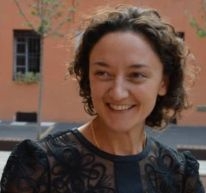 Maria Semi is a scholar of eighteenth-century music and science. Her research areas include the history of ideas; philosophy and aesthetics of music; reception and translation of ancient Greek theories of music in the eighteenth century; music perception and experience; and music and science. Her book, Music as a Science of Mankind in Eighteenth Century Britain, was published by Ashgate in 2012.
Maria Semi is a scholar of eighteenth-century music and science. Her research areas include the history of ideas; philosophy and aesthetics of music; reception and translation of ancient Greek theories of music in the eighteenth century; music perception and experience; and music and science. Her book, Music as a Science of Mankind in Eighteenth Century Britain, was published by Ashgate in 2012.
 Ben Steege joined the Department of Music as Assistant Professor in 2012, having previously taught at Stony Brook University. He specializes in the intellectual history of music in the nineteenth and twentieth centuries, with particular attention to early modernism and intersections with the history of science. His work has been supported by research fellowships from the Alexander von Humboldt Foundation (2010–11), the National Endowment for the Humanities (2014–15), and the Radcliffe Institute for Advanced Study at Harvard University (2014–15). He is Associate Editor of the journal, History of Humanities, and previously served on the editorial board of Music Theory Spectrum (2009–12). His book, Helmholtz and the Modern Listener (Cambridge University Press, 2012), won the Emerging Scholar Award from the Society for Music Theory in 2014. Prof. Steege’s current book project, “Music and the Resistance to Psychology, 1908–1968,” explores the shifting status of psychological knowledge for musical thought in contexts ranging from early comparative musicology to Weimar aesthetics to the emergence of information theory.
Ben Steege joined the Department of Music as Assistant Professor in 2012, having previously taught at Stony Brook University. He specializes in the intellectual history of music in the nineteenth and twentieth centuries, with particular attention to early modernism and intersections with the history of science. His work has been supported by research fellowships from the Alexander von Humboldt Foundation (2010–11), the National Endowment for the Humanities (2014–15), and the Radcliffe Institute for Advanced Study at Harvard University (2014–15). He is Associate Editor of the journal, History of Humanities, and previously served on the editorial board of Music Theory Spectrum (2009–12). His book, Helmholtz and the Modern Listener (Cambridge University Press, 2012), won the Emerging Scholar Award from the Society for Music Theory in 2014. Prof. Steege’s current book project, “Music and the Resistance to Psychology, 1908–1968,” explores the shifting status of psychological knowledge for musical thought in contexts ranging from early comparative musicology to Weimar aesthetics to the emergence of information theory.
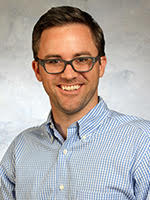 Dustin D. Stewart is an Assistant Professor of English and Comparative Literature at Columbia University. He specializes in British literature 1660-1800, with particular interests in poetry between Milton and romanticism and in religious identity after the Restoration. He is currently working on a study of futurity and the soul in the period. A planned second book project will trace the rise of the Evangelical novel. His published articles have appeared in such venues as the Journal for Eighteenth-Century Studies, Women’s Writing, and Studies in Romanticism.
Dustin D. Stewart is an Assistant Professor of English and Comparative Literature at Columbia University. He specializes in British literature 1660-1800, with particular interests in poetry between Milton and romanticism and in religious identity after the Restoration. He is currently working on a study of futurity and the soul in the period. A planned second book project will trace the rise of the Evangelical novel. His published articles have appeared in such venues as the Journal for Eighteenth-Century Studies, Women’s Writing, and Studies in Romanticism.
 Sejal Sutaria is a postdoctoral Marie Sklodowska-Curie Fellow at Kings College London. Her research and teaching interests include postcolonial approaches to twentieth-century global Anglophone literature with particular focus on British modernism, South Asian literature, and Dalit and indigenous writing. She has just been awarded a Marie Curie grant to complete research on a monograph entitled Multipolar Modernity and the Making of Modernist Resistance in Britain and India. She is also at work on a collaborative project about Dalit protest literature in Indian vernacular languages.
Sejal Sutaria is a postdoctoral Marie Sklodowska-Curie Fellow at Kings College London. Her research and teaching interests include postcolonial approaches to twentieth-century global Anglophone literature with particular focus on British modernism, South Asian literature, and Dalit and indigenous writing. She has just been awarded a Marie Curie grant to complete research on a monograph entitled Multipolar Modernity and the Making of Modernist Resistance in Britain and India. She is also at work on a collaborative project about Dalit protest literature in Indian vernacular languages.
